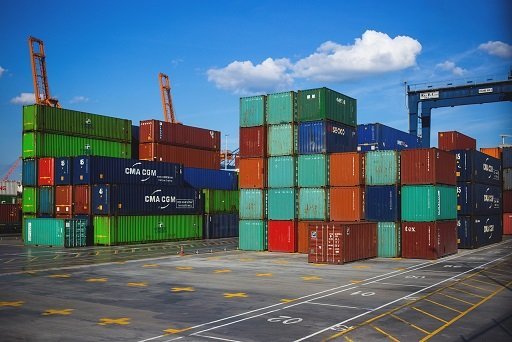🌎🚢Master international shipping with our comprehensive guide! Understand and manage your shipping documents with ease! 📚📝 #ShippingGuide
International shipping documents are essential for transporting goods across international borders. These documents provide necessary information, including details about the goods, the exporter, and the recipient. They may include a commercial invoice, bill of lading or airway bill, packing list, certificate of origin, etc. Incorrect completion of these documents often results in shipment delays.
Understanding international shipping documents is crucial for businesses involved in global trade. These documents ensure compliance with foreign regulations, prevent shipment delays or seizures, facilitate the correct payment of duties and taxes, enhance logistic efficiency, and support transparency in cross-border transactions. Inaccurate comprehension can lead to costly fines or disruptive delays, threatening business success.
The Basic Concept of International Shipping Documents
Historical Context
The foundation of international shipping documents dates back to ancient times when maritime trade began. Over time, globalization and standardization in the late 20th century evolved these documents into comprehensive details covering goods’ descriptions and legal aspects. Today, they are crucial for customs clearance, ensuring smooth cross-border transactions via sea freight along established international shipping routes.
Variations and Complexity
Variations in international shipping documents arise from the need to conform to various countries’ customs regulations and practices. These diverse papers, such as Bills of Lading or Certificates of Origin, ensure seamless trade by reflecting each product’s specifics, such as value, type, or origin. Their complexity is intended to guide commodities uniquely across borders without violating respective legal constraints.
Different Types of International Shipping Documents
Commercial Invoice
A commercial invoice is essential in international trade transactions, detailing goods being sold and shipped. It provides a detailed record of the transaction between the exporter and importer by specifying product descriptions, quantities, prices, and shipping terms. Besides facilitating customs clearance, it serves as a reliable reference for potential audits or disputes.
Bill of Lading
A bill of lading is a pivotal legal document issued by a carrier to the shipper. It serves various crucial roles, such as acting as a receipt confirming the transfer of goods, demonstrating a contract for carriage, and proving ownership. Its careful documentation ensures a smooth transportation process while protecting parties from potential disputes related to shipment discrepancies.
Airway Bill
An Airway Bill (AWB) is a key document in international trade that acknowledges receipt of goods for air transport. Issued by an airline, it serves as proof of contract between the shipper and carrier, detailing agreed terms of transference. It traces freighter movement, safeguards sellers if buyers default, and is crucial for customs clearance.
Packing List
A packing list is a detailed checklist used to organize all items necessary for travel or shipping. It contains information such as the quantity and description of each item, helping prevent forgetting essentials. Commercial packing lists provide customs officials with the insight they require during the goods clearance process, making them beneficial for both personal and professional use.
Certificate of Origin
A Certificate of Origin is critical in international trade, validating the origin country of exported goods. It’s required by customs authorities to determine tariff treatment and establish whether the imports comply with local regulations or trade agreements. Generally issued by a Chamber of Commerce or Exporters & Manufacturers Trade Association, it ensures fair global trading practices.
Export License
An Export License is an authorization by governmental entities that approves the exportation of certain goods or information from one country to another. These licenses are typically required for goods associated with national security or items potentially harmful to society. They ensure compliance with export laws, embargoes, and treaties while facilitating international trade.
Inspection Certificate
An Inspection Certificate is an official document asserting that a certain product, equipment, or base material meets the required standards set by regulatory authorities. Produced post-site or factory inspection, it provides evidence of compliance with stated specifications. This certificate is crucial in industries like construction and power production, serving to generate confidence in safety and efficacy operations.
Proforma Invoice
A proforma invoice is a preliminary bill of sale sent by sellers to buyers in advance of a delivery or shipment of goods. It typically details the types and quantities of items sold, their value, shipping charges, and other crucial information like weight or measurements. Although not an official demand for payment, it helps avoid any future misunderstandings.
Roles and Usefulness of Each Document in International Shipping
Commercial Invoice
The commercial invoice details goods being sold and shipped, providing a record of the transaction. It specifies product descriptions, quantities, prices, and shipping terms, facilitating customs clearance and serving as a reference for audits or disputes.
Bill of Lading
The bill of lading confirms the receipt of goods and contracts for transportation, serving as legal evidence. It acts as a receipt confirming the transfer of goods, demonstrates a contract for carriage, and proves ownership, ensuring a smooth transportation process while protecting parties from disputes.
Airway Bill
The airway bill acknowledges receipt of goods for air transport and serves as proof of contract between the shipper and carrier. It traces freighter movement, safeguards sellers if buyers default, and is crucial for customs clearance.
Packing List
The packing list details the quantity and description of each item, aiding in preventing the forgetting of essentials. It provides customs officials with the necessary insight during the goods clearance process, beneficial for both personal and professional use.
Certificate of Origin
The certificate of origin validates the origin country of exported goods, required by customs authorities to determine tariff treatment and compliance with local regulations or trade agreements. It ensures fair global trading practices.
Export License
The export license authorizes the exportation of certain goods or information, ensuring compliance with export laws, embargoes, and treaties. It facilitates international trade for goods associated with national security or potentially harmful items.
Inspection Certificate
The inspection certificate asserts that a product, equipment, or base material meets the required standards. Produced after inspection, it provides evidence of compliance with specifications, crucial in industries like construction and power production.
Proforma Invoice
The proforma invoice is a preliminary bill of sale detailing types and quantities of items sold, their value, shipping charges, and other crucial information. It helps avoid misunderstandings by providing an advance outline of the transaction.
How to Properly Fill Out International Shipping Documents
Attention to Detail
Filling out documents requires meticulous attention. Identify all required fields, often marked with an asterisk (*). Read each field carefully before filling in the relevant information, ensuring data such as names and addresses are spelt correctly. Review populated details for accuracy before signing or submitting a document. Maintain privacy while entering sensitive information to avoid exposure.
Common Errors
Poorly filled out international shipping documents can cause significant delays. Common errors include incorrect or missing commodity codes, incomplete recipient addresses, and lack of proper seller details. Incorrect declaration of item value or misclassification can lead to higher tariffs. Forgetting essential signatures makes the document legally invalid. Avoid these mistakes for smooth global trade operations.
Best Practices
Ensure accurate and legible document completion by reading all instructions thoroughly before starting. Use a black or blue pen for clarity and cross-check every detail entered against accompanying information to avoid errors. Stick to declared formats, consistently using alphabetical or numerical systems as directed. Double-check the spelling of names or places. Proofread the entire document before submission for professionalism.
Legal Aspects of International Shipping Documents
Legal Implications
Incorrectly filled international shipping documents can result in serious legal implications, including cargo holds, fines, or seizures by customs authorities. Deliberate falsifications could attract fraud charges with possible jail terms. Such issues could damage a business’s reputation and result in lost business opportunities due to eroded trust among partners and clients.
Role as Legal Contracts
International shipping documents serve as legal contracts by outlining the terms and conditions of trade transactions. Papers like the Bill of Lading or Commercial Invoice explicitly describe goods being transported, their value, destination, and responsible parties. They prevent fraud and ensure regulatory compliance while establishing responsibility in case of damage or loss during transit.
Importance of Trade Laws
International trade laws play a crucial role in international shipping, ensuring smooth transactions across borders. They provide structure for agreements, foster good relations between countries, and prevent potential conflicts. Trade policies regulate cargo and define liabilities, simplifying complex logistical processes. Thus, international trade laws are instrumental for a dependable global trading system, securing fair business environments and supporting economic growth globally.
Importance of Compliance with International Shipping Document Regulations
Streamlining Customs Processes
Compliance plays a pivotal role in streamlining customs clearance processes. Adhering to regulatory requirements and international trade policies ensures efficient merchandise movement across borders. Compliance reduces delays, mitigates legal complications, helps avoid potential fines, and enhances business reputation. It guarantees smooth transactions, fostering strong global commerce relations, and ultimately augmenting economic growth both domestically and internationally. Hence, compliance is fundamental in facilitating customs operations.
Penalties for Non-Compliance
Non-compliance with shipping document regulations attracts significant penalties, ranging from fines and cancellation of business licenses to legal prosecution in severe cases. Failure to adhere signifies gross negligence and potential fraud, disrupting sanctions by regulatory bodies such as Customs and Border Protection (CBP). Organizations should prioritize the correct handling of shipping documents to avoid punitive measures.
Digital International Shipping Documents
Advantages of Digital Documents
Digital international shipping documents offer numerous advantages, including space efficiency and easy access. They can be stored virtually without occupying physical space, aiding in better organization. Easy sharing enhances collaboration among team members. Additionally, digital files are searchable for quick retrieval of information and contribute towards environmental sustainability by reducing paper consumption and associated waste.
Effective Utilization
To effectively utilize digital international shipping documents, integrate them into a cloud-based management system. This allows instant access to crucial data such as invoices and bills of lading, ensuring seamless procedures for customs clearance. Going paperless enhances efficiency, reduces errors, and fosters real-time communication with customers or partners globally. Optimizing digital resources bolsters supply chain capabilities.



